Marine Life & Conservation
Will you go Fish Free this February?
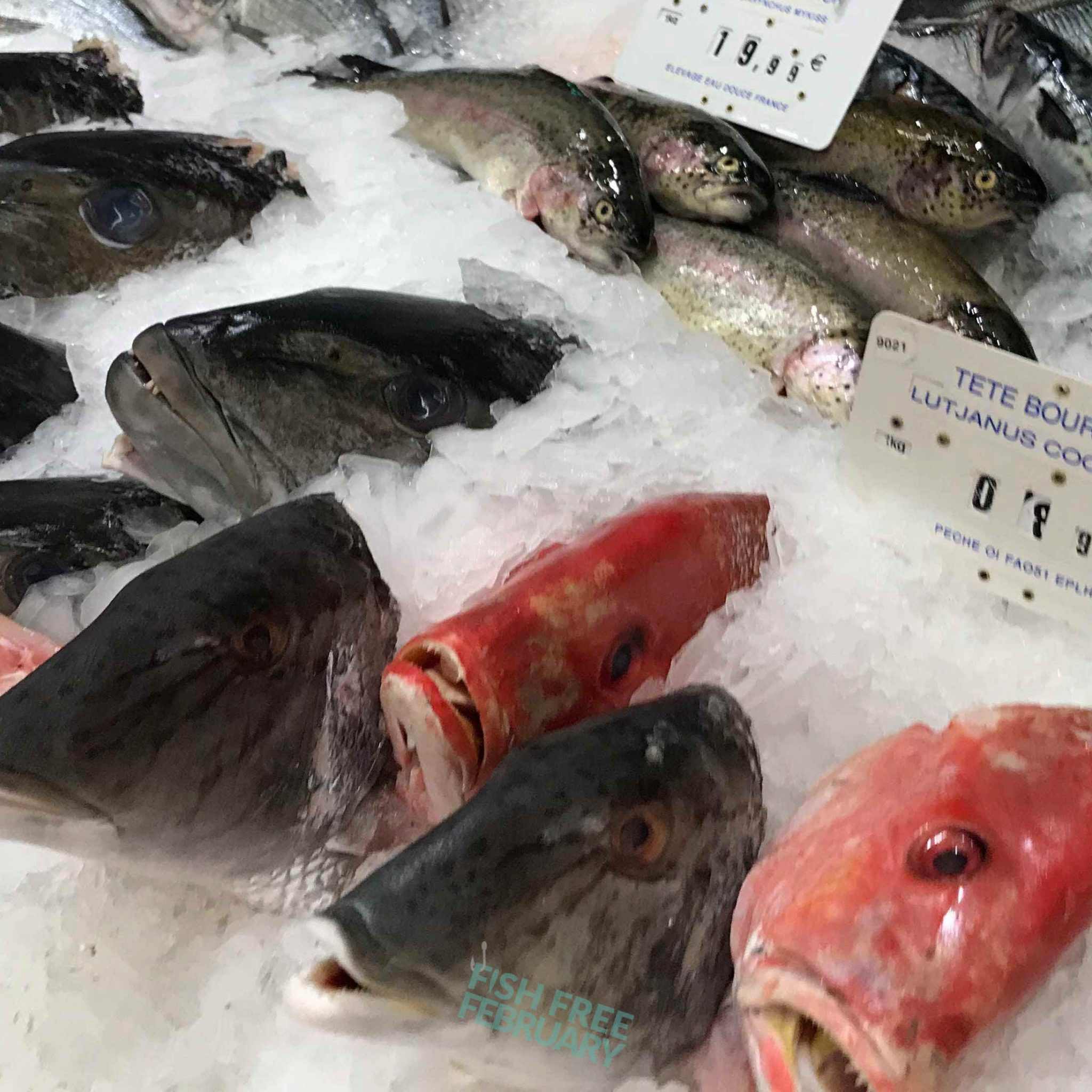
Marine biologist Simon Hilbourne and Oceans Festival UK are launching a new campaign called Fish Free February, challenging the public to protect our oceans by removing seafood from their diet for 29 days.
Fish Free February is a campaign organised by international marine conservationists to reduce our collective impact on the oceans and the life that they hold, in a simple and effective way. Throughout the month of February, #FishFreeFebruary will encourage people to discuss the wide range of issues associated with industrial fishing practices, putting the wellbeing of our oceans at the forefront of dietary decision-making.
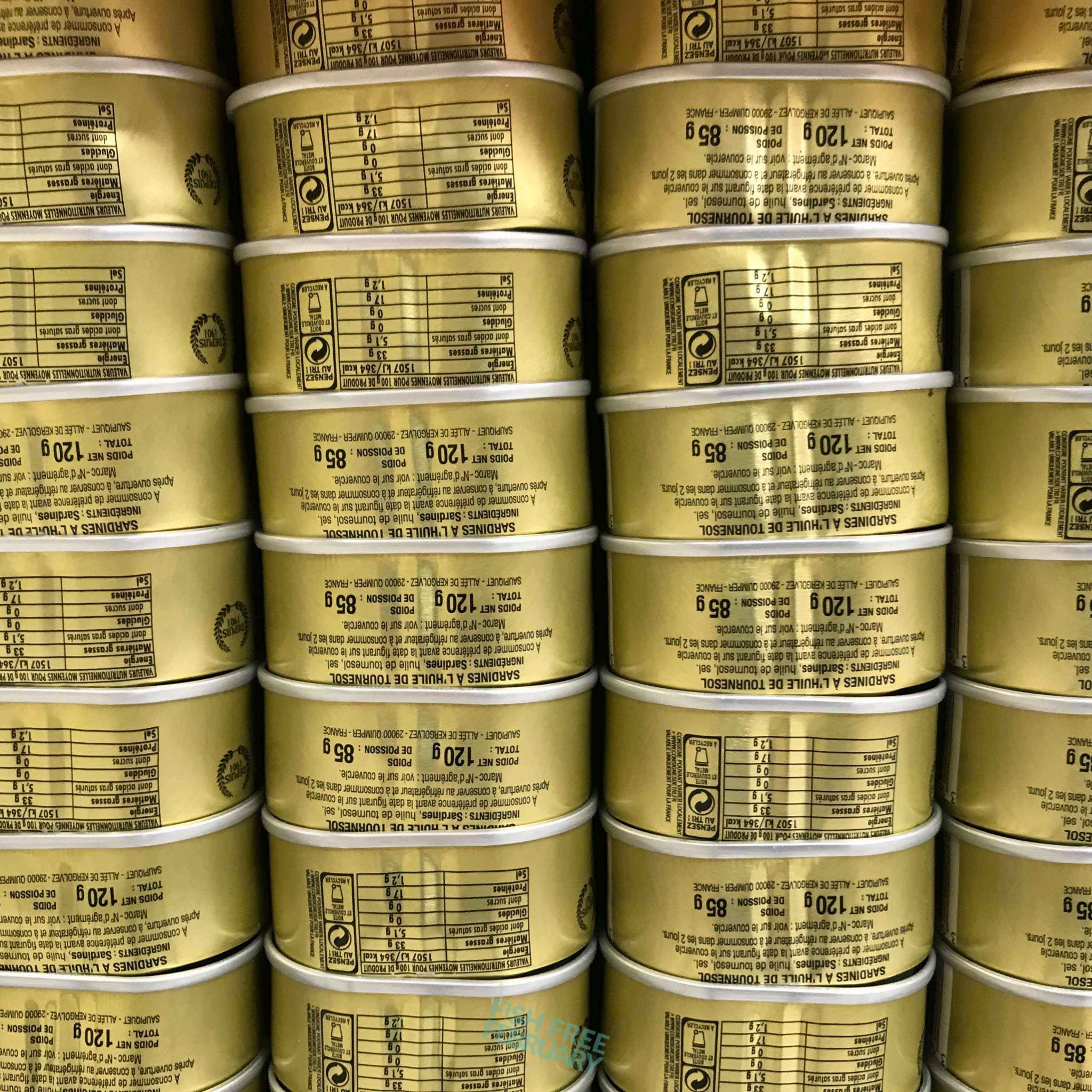
Not all fishing practices are bad – well-managed, small-scale fishing that uses selective fishing gears can be sustainable. However, when it comes to the majority of our seafood, this is not the case. We mostly rely on industrial fisheries which often prioritise profit over the wellbeing of our planet, resulting in multiple environmental challenges. Fish Free February will shed light on these challenges, create wider discussion around these issues, and offer solutions.
So what are the problems with fishing?
Overfishing: We are taking more than our fair share of fish, so much in fact that populations can’t repopulate fast enough. 90% of global fish stocks are fished to their maximum or overfished with an estimated 1-2.7 trillion fish caught annually for human consumption. Compare that to the 63 billion mammals and birds killed each year for food and it becomes clear that there aren’t plenty more fish in the sea.
Plastic pollution: Discarded fishing nets make up 46% of the plastic in the Great Pacific Garbage Patch, far more than plastic bags or straws. This is when fishing gear is abandoned at sea. This might be due to breakages, losing items overboard and in some cases old or broken fishing gear is purposely dumped into the sea. Just because there is not fisherman attached, doesn’t mean those nets, hooks and lines aren’t still lethal. Large pieces of plastic pollution like fishing nets break down into microplastics which are then ingested by marine life. In 2018 a study found 100% of wild and shop-bought mussels to contain plastic.
Destructive fishing practices: Fishing often doesn’t just kill the species that you want to eat, bycatch and non-specific fishing methods (such as dynamite, long lines, trawlers, gill nets and electric pulse nets) mean that other species end up dead as well. Dolphins, sharks, turtles, corals and many other fish species – they’re all caught up in this mess as well.
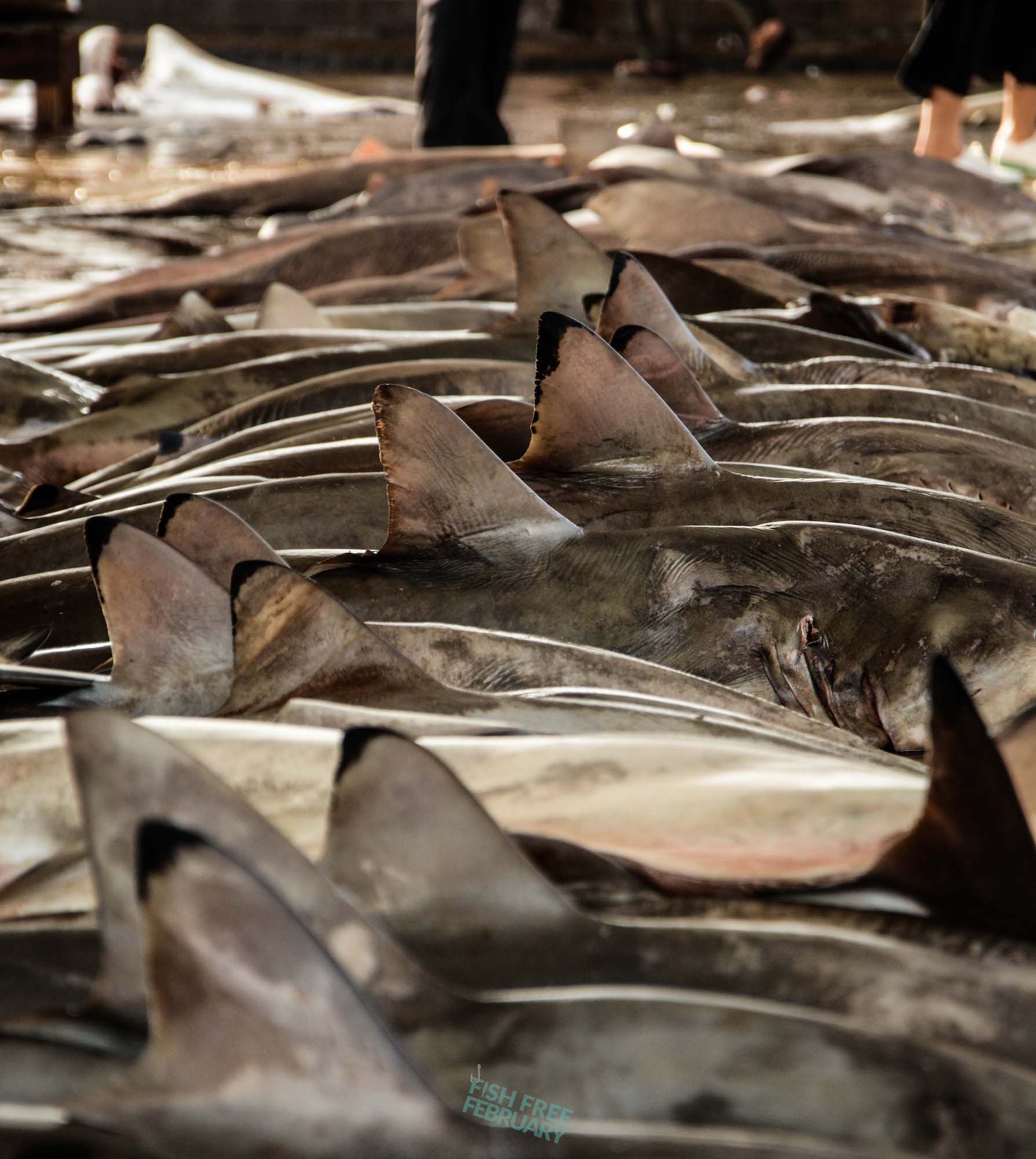
Mislabelling: That’s right, fish isn’t always what it says on the tin. A study by Oceana found that as much as one third of seafood samples in the US were not what they were labelled as in restaurants and stores. This can have huge implications on the environment and also human health, but ultimately it highlights that we need far more stringent regulation and monitoring in this industry.
Farmed fish (aquaculture): 40% of the seafood we eat is farmed, but creating seafood farms often involves destroying existing habitats and therefore has a high carbon footprint. Chemicals and diseases associated with seafood farming also impact the surrounding waters and eventually affect wild populations.
Food waste: The Scottish farmed salmon industry is highly wasteful, with around 20% of fish never reaching harvest due to mortalities and escapes during production, according to its own figures. If this level of waste remains unchecked, a large proportion of the wild fish sourced to feed its salmon is also being wasted.
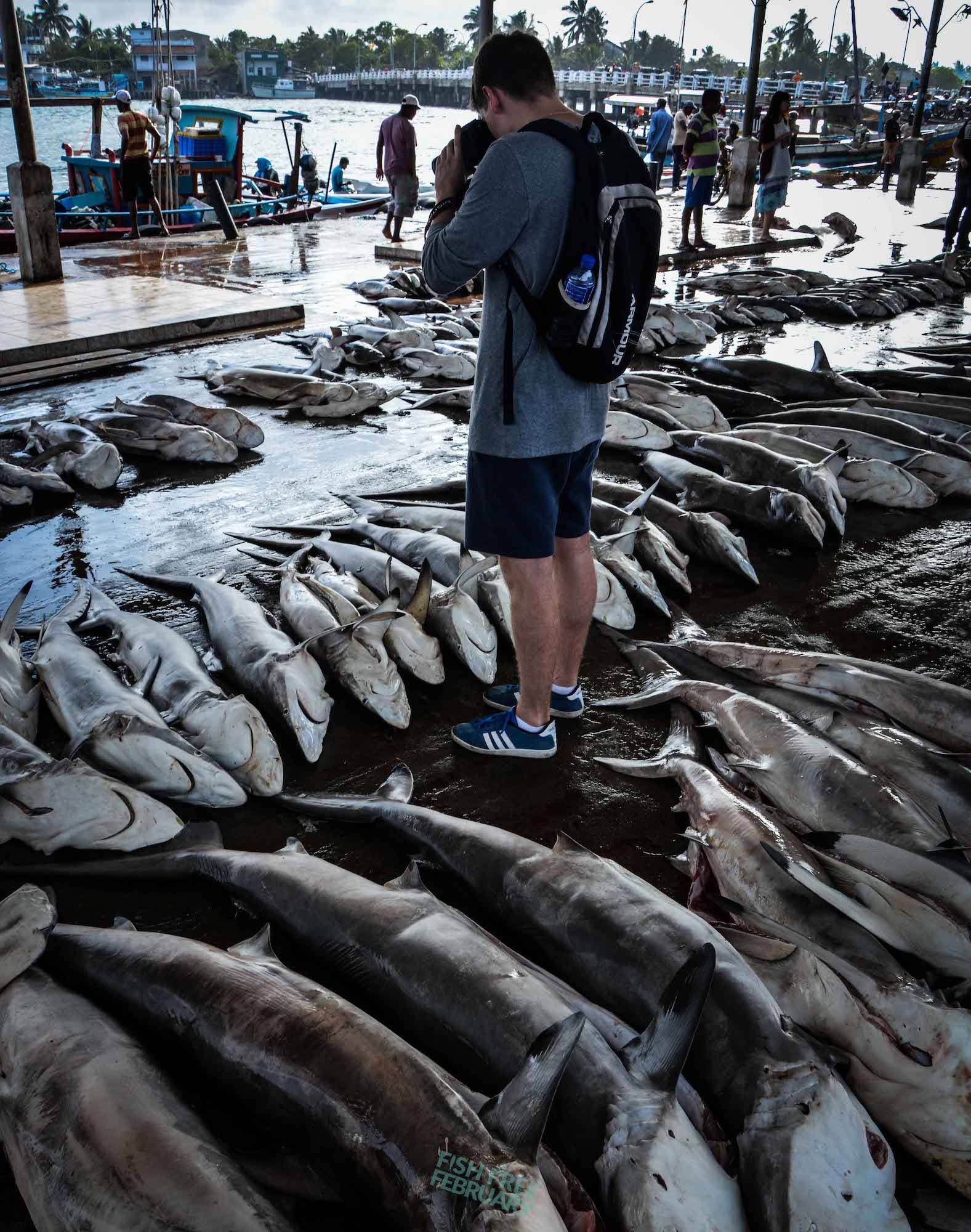
Human rights: In regions of the world such as South-East Asia, forced labour and human trafficking is rife within the fishing industry. It is very possible that the imported fish in our supermarkets has made its way from the sea to the shelves as a result of modern-day slavery.
Illegal fishing: Companies in the fishing industry don’t always follow the rules. As you might imagine, it can be fairly challenging to monitor the high-seas and currently illegal, unregulated and unreported fishing is widespread. This exacerbates the negative impact of all of the issues associated with industrial fishing and means that companies continue their dirty work and there is no justice for our oceans.
How will Fish Free February change any of that?
Fish Free February aims to result in one, or several, of the following outcomes:
Participants will…
- Commit to eradicating seafood from their diet for 29 days and focus on plant-based, sustainable alternative ways of eating.
- Consciously reduce the amount of seafood in their diet to limit the degree of their personal impact. If continuing to consume seafood after February, people are encouraged to purchase items that are certified by an independent sustainable fishing moderator, such as the Marine Stewardship Council. People can also focus on trying to purchase seafood from small-scale, local and sustainable fisheries.
- Increase the discussion surrounding seafood and fishing practices, to increase the level of knowledge in public consciousness.
- Ask questions about where the fish they are being sold or served came from. Holding retailers and restaurants responsible for the products they sell will put pressure on them to source seafood from sustainable fisheries.
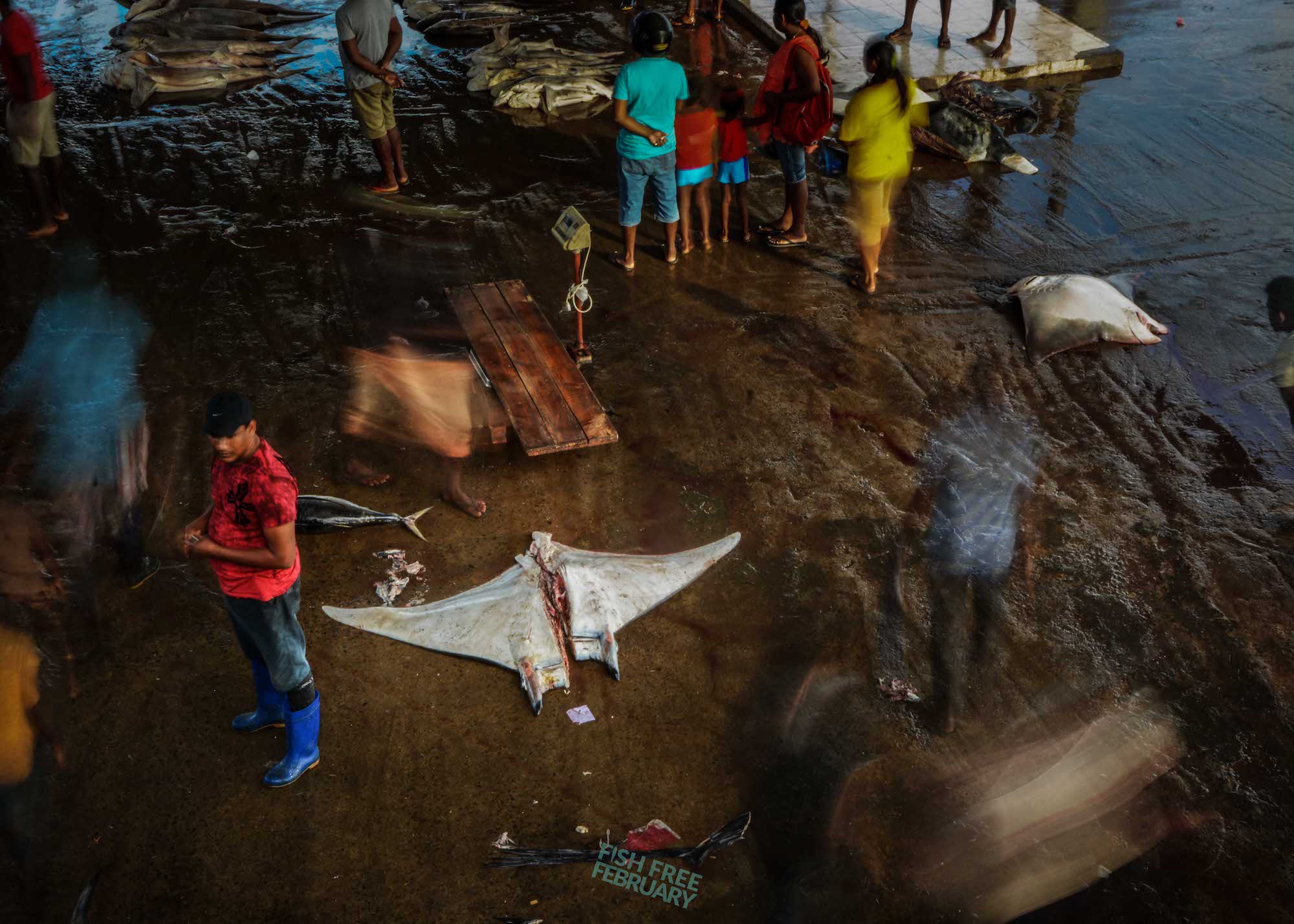
#FishFreeFebruary will send a clear message of protest against current standards of fishing and seafood farming. The ultimate goal is to generate a shift in the fishing industry and encourage a radical reduction in seafood consumption, opting for sustainable practices when fish is purchased. Additionally, Fish Free February will strengthen the connection that the public have with their food and to drive them to thoroughly consider where it has come from and how it has made its way to their plate.
“The fact of the matter is humans are taking far too many fish and other marine species from the sea. We simply must reduce the number of fish being caught. The best way to do that is to stop or greatly reduce eating seafood.” – Simon Hilbourne, Fish Free February Founder.
“We have the opportunity to tackle overfishing, plastic pollution and ecosystem collapse through the very simple act of eating less fish. If you weren’t quite able to commit to Veganuary or want another opportunity to do your part for the planet, please join the Fish Free February challenge!” – Jasmine Tribe, Founder of Oceans Festival UK.
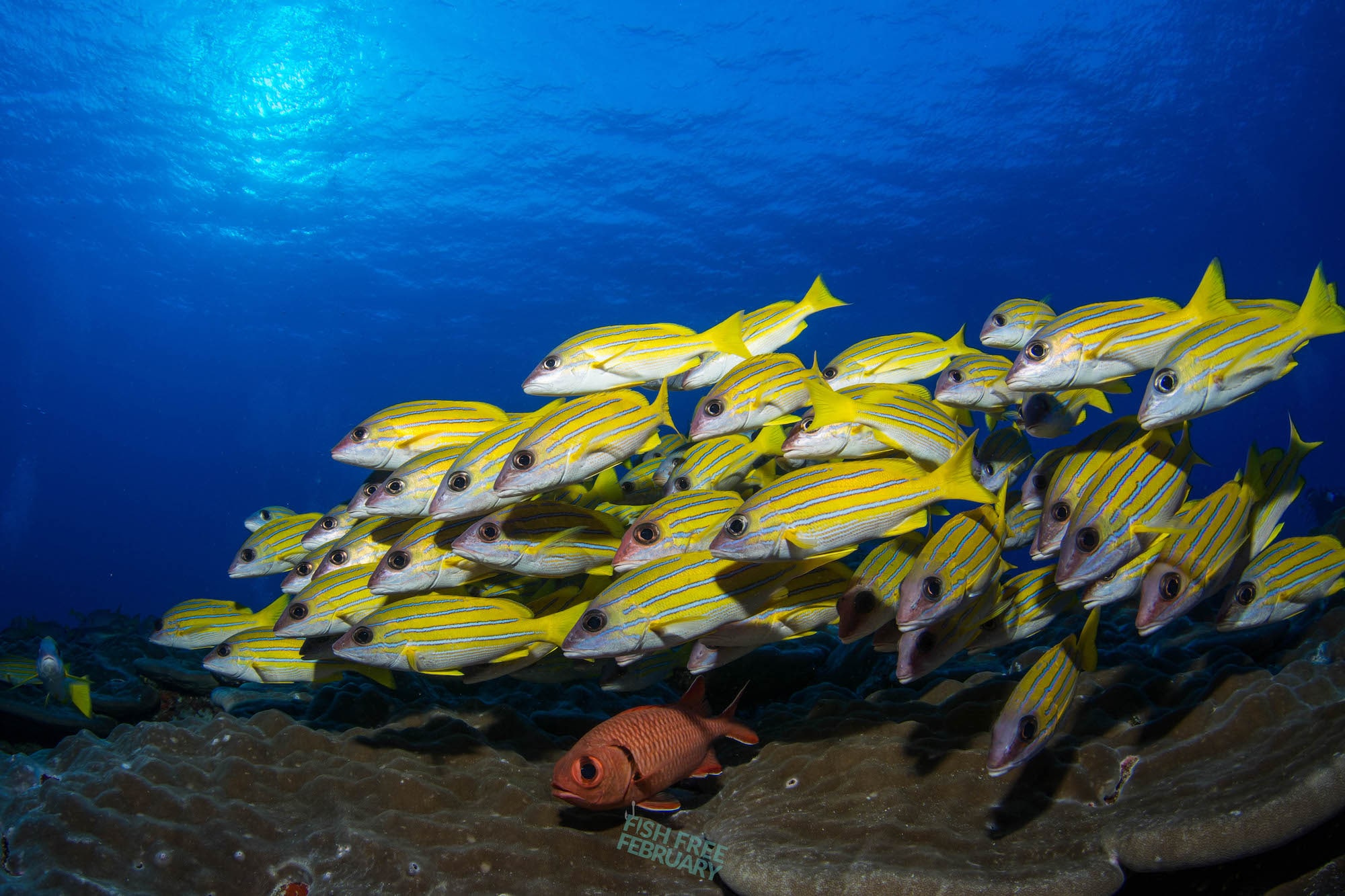
“The ecological balance of our oceans is under huge stress from overfishing and I’ll be championing #FishFreeFebruary to highlight this. With such a vast amount of ocean plastic coming from the fishing industry this is also a great opportunity to highlight the ‘hidden’ plastic pollution in our food chain.” – Natalie Fee, Founder of City to Sea and author of ‘How to Save the World for Free’.
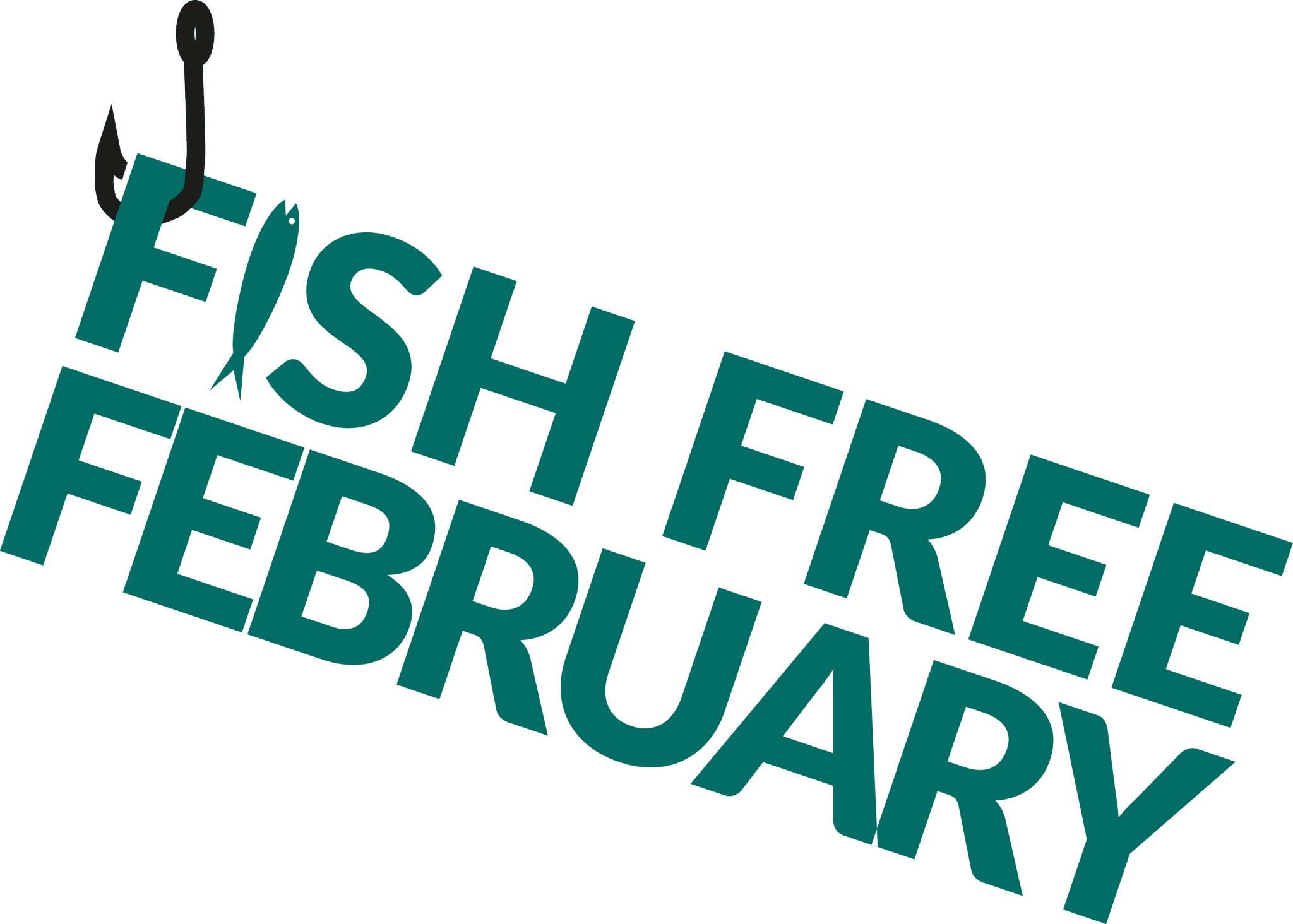 Pledge your support to go Fish Free this February at: www.fishfreefebruary.com/pledge.
Pledge your support to go Fish Free this February at: www.fishfreefebruary.com/pledge.
Images: Simon Hilbourne
Marine Life & Conservation
Paul Watson Released as Denmark Blocks Japan’s Extradition Bid

Renowned anti-whaling activist Paul Watson has been released from custody in Greenland after spending five months in detention. Denmark’s Justice Ministry rejected Japan’s request for his extradition, citing insufficient guarantees that his time already served in custody would be credited against any potential sentence.
The 74-year-old Canadian-American was arrested on July 21 in Nuuk, Greenland’s capital, when his ship docked to refuel. His arrest was based on a 2012 Japanese warrant related to a 2010 encounter in Antarctic waters. Japan alleged Watson obstructed operations and caused damage to a whaling research ship during efforts to disrupt illegal whaling. Watson has consistently denied these claims, maintaining his commitment to marine conservation.
Denmark, which oversees extradition matters for Greenland, concluded that while the legal conditions for extradition were met, the lack of assurances from Japan regarding time-served credit made extradition untenable.
In a video shared by his foundation, Watson expressed gratitude and relief, saying, “After five months, it’s good to be out… and good to know they’re not sending me to Japan.” He added that the most difficult part of his time in custody was being separated from his two young sons.
Watson is a pioneering figure in marine conservation, known for founding the Captain Paul Watson Foundation in 2022 after decades of activism with the Sea Shepherd Conservation Society. His bold efforts to defend marine life have earned him widespread support, including from celebrities and conservationists. His work has also been featured in the acclaimed reality TV series Whale Wars.
Watson’s lawyer, Jonas Christoffersen, praised the decision, stating, “We are happy and relieved that Paul Watson is now free.” He added that Watson is eager to reunite with his family and continue his vital work.
The arrest occurred while Watson’s vessel, the M/Y John Paul DeJoria, was en route to the North Pacific with a team of 26 volunteers to intercept a Japanese whaling ship. His foundation described the arrest as politically motivated and emphasized that Watson’s actions were focused on ending illegal whaling practices.
Japan resumed commercial whaling in 2019 after leaving the International Whaling Commission, asserting that whale meat is a cultural tradition. Conservationists, however, continue to challenge these practices, highlighting their impact on marine ecosystems.
Despite the challenges, Watson remains steadfast in his mission to protect marine life and bring attention to whaling practices. His dedication to ocean conservation has made him a globally respected advocate for the environment.
Marine Life & Conservation
12 Days of Zero-Waste Fish-mas

This holiday period, the Marine Conservation Society, the UK’s leading ocean membership charity, invites you to make some simple changes to eating fish this Christmas to help our seas.
Dr Kenneth Bodles, Head of Fisheries and Aquaculture at the Marine Conservation Society, said, “During the festive season, our consumption increases, but so does waste. Sustainability isn’t just about where food comes from – it’s also about how you use it. By reducing waste and making the most out of your seafood, you’re not only taking steps to be more ocean-friendly, but can also help to cut costs during what is often one of the most expensive times of the year”.
The Marine Conservation Society has compiled twelve tips on how to consume seafood sustainably with zero-waste this Christmas:
Buy whole fish instead of fillets
Instead of fillets, consider buying whole fish such as salmon, hake, or lemon sole. By adopting a “nose to tail” approach with cooking, whole-baked fish not only feeds a crowd, but also helps to minimise waste and maximise sustainability by using up every part of the animal, including bones, skin, and fat.
Make fish stock
Leftover fish bones or shells can be put to good use by boiling them to make a nourishing fish stock or bisque. This can be frozen and preserved for later use and makes for a flavourful base in a soup.
Make your own fish pâté
Avoid waste by turning leftover fish, such as smoked mackerel or salmon, into a delicious pâté by blending with cream cheese and lemon. Perfect when paired with crackers.
The sustainability of salmon and mackerel varies depending on where and how it is caught or farmed. For more information on green-rated options, check the charity’s Good Fish Guide.
Buy frozen
By purchasing seafood that is frozen or vacuum-packed, this helps to reduce waste by extending the shelf life of your food.
Fish pie
If you’re wondering what to do with leftover cooked fish, why not opt for a classic fish pie with mashed potatoes, leeks, and a cheesy sauce? A sure crowd pleaser on Boxing Day.
Use the head
Don’t forget the fish head! The meat is incredibly tender and flavourful. The charity recommends a cod’s head curry or recreating Fallow’s renowned cod’s head in siracha butter.
By stretching your ingredients further, not only is this a more sustainable way to enjoy seafood, but also cost-effective by repurposing leftovers and cooking creatively.
Boxing Day brunch
Mix leftover kippers or smoked salmon with scrambled eggs for a tasty, zero-waste, Boxing Day brunch.
For best choice, make sure you buy kippers, or herring, from the North Sea and the North Irish Sea.
Zero-waste storage
A top tip from the Marine Conservation Society to avoid waste is freezing fish offcuts to save for future use.
Crisp up the skin
Even leftover fish skin can be turned into a quick savoury snack by crisping it up in an air fryer with a little olive oil and salt.
Anchovies two ways
Leftover anchovies can either be blended with butter to make a delicious anchovy butter or tossed into pasta for a hit of umami flavour.
The charity recommends opting for anchovies caught in the Bay of Biscay for best choice.
Fishcakes
For an easy, zero-waste meal, leftover seafood trimmings can be mixed with mash and fried in breadcrumbs to make fishcakes.
Pickled mussels
Try pickling mussels in 1:1 vinegar and water, with a dash of sugar for a sustainable, zero-waste snack that can be enjoyed well beyond the festive season.
Mussels farmed in the UK are a seafood superhero. Grown using low-impact methods and harvested by hand, they get all the food they need from the sea around them. This makes them one of the most sustainable, ocean-friendly, and cost-effective seafood options.
Players of People’s Postcode Lottery have raised £6.6M towards the Marine Conservation Society’s vital work in making seafood more sustainable.
Laura Chow, Head of Charities at People’s Postcode Lottery, said: “Fish is a festive favourite for many, but making sustainable choices when it comes to how we buy and eat seafood makes all the difference for our ocean. Support from players of People’s Postcode Lottery has helped the Marine Conservation Society further its sustainable seafood work, so that we can all enjoy healthier, better protected seas.”
The Marine Conservation Society encourages you to make sustainable seafood choices a year-round habit, not just for Christmas. To check how sustainable the seafood on your plate is, you can visit the charity’s Good Fish Guide. The Guide helps consumers and businesses identify the most sustainable seafood using a simple traffic light system, based on where and how species are caught or farmed. Green is the best choice, amber means improvements are needed, and red indicates fish to avoid buying.
Zero-waste gift idea
Why not embrace a zero-waste Christmas by gifting a membership to support marine conservation? It’s a meaningful, low-waste gift that helps protect our ocean for generations to come. Memberships start from as little as £5 a month – the price of a sandwich and drink from your local coffee shop.
Find the latest sustainable seafood advice for wild-caught and farmed seafood on the Good Fish Guide, downloadable to your phone from www.mcsuk.org/goodfishguide.
-

 News2 months ago
News2 months agoIconic SS United States to become the World’s Largest Artificial Reef
-

 News3 months ago
News3 months agoBook Review – 52 Assignments: Underwater Photography
-

 Gear News3 months ago
Gear News3 months agoDYNAMICNORD – New German diving brand enters the British market
-

 News3 months ago
News3 months agoExploring Cenote El Pit: A Diver’s Dream
-

 Gear News3 months ago
Gear News3 months agoTry BARE drysuits (and maybe even win one!) this Friday with Sea & Sea at North West Dive Fest
-

 Marine Life & Conservation3 months ago
Marine Life & Conservation3 months agoBook Review: Coral Triangle Cameos
-

 Blogs2 months ago
Blogs2 months agoDive the Egyptian Red Sea this Autumn with Regaldive
-

 News3 months ago
News3 months ago2024 Ocean Art Underwater Photo Competition Announced



